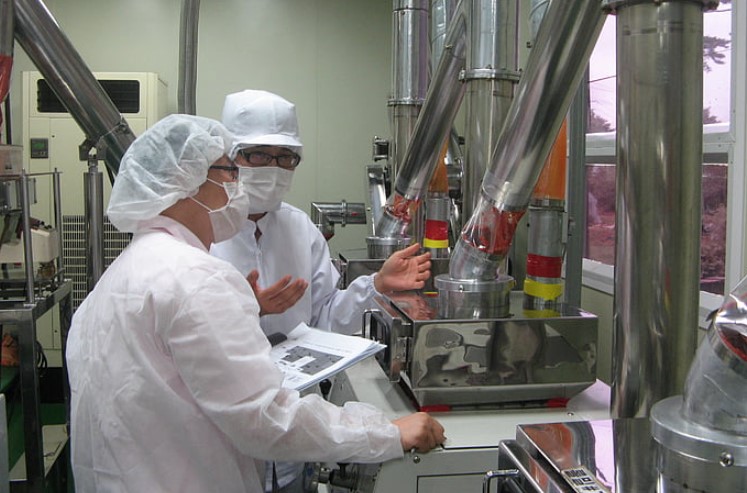What is a processed continuum? What comes to mind when you hear the phrase “processed foods”? Our minds immediately conjure up images of cookies, candy, chips, and fast-food restaurants. Nonetheless, anything you do to a portion of food after it has been plucked from a tree or picked from the soil is a form of processing, such as chopping, blending, cooking, drying, and grinding. Most of us eat food that has been processed in some way, so we eat food that has been processed. The important factor is the degree of processing.
As an example, let’s walk through the sequence from unprocessed to processed. Almost all bread starts with wheat berries, which are converted into wheat flour. The wheat berry is a whole-grain food that contains the four components of a grain seed: the bran (outer covering), the endosperm (center core), and the germ (small embryo). In order for a food to be called a whole-grain product, all three components must be present, synergistically delivering rich nutrition.
All forms of grain processing, including milling, cracking, and grinding, are used to produce grain products. In other words, the less processed the food is, the lower it is on the continuum. We’ll call minimally processed foods those that are the least processed. In other words, they have been marginally altered from their whole, natural state. It’s best to choose these options if you want to maintain optimal health and weight.
Processed whole foods are higher on the continuum, meaning they are more highly processed and are potentially more problematic for health and weight. From least/minimally processed to most refined and processed, here is how whole wheat grain is processed along the processed continuum.
-
The whole wheat berry is in its original state.
-
Bulgur and whole wheat berries are cracked. Whole wheat berries were once intact, but they have been fractured. Despite its minimal processing, the grains are still large; all three parts of the grain remain intact.
-
Flattened whole wheat flakes are created by rolling whole wheat berries. Wheat still contains all its original components.
-
Whole wheat flour and stone-ground whole wheat flour: The wheat berry’s whole parts can be found in both, though the particles are now finely ground, making bread possible. The particles in stone-ground flour are slightly larger than those in other whole wheat flours, making it slightly less processed than other whole wheat flours.
-
White flour is highly refined and processed. Despite the original berry’s germ and bran being removed, only the endosperm remains, which is used to make white bread, commercial pastries, and cookies.
It never occurred to you that a kernel of wheat could be used for so many things. Neither did we discuss farina or pasta made from semolina, nor sprouted wheat, which is baked into bread. From the whole grain found in nature to fracturing, grinding, and processing to greater degrees to produce the most refined version, the same continuum can be applied to all grains—oats, barley, and corn. What is the significance of any of this, and why should your diet be primarily composed of minimally processed, whole-plant foods? Nature provides rich, complete nutrition when all parts of the original grain are present.
In direct proportion to minimal processing, fiber and phytonutrients found only in plants are maximized. There has been no extraction or takeaway. Plant foods are compromised by processing and refinement to a greater extent. Fractioned, refined food can only provide fractioned nutrition at the extreme end of the continuum. It doesn’t matter how much we consume wheat bran and vitamin pills while nibbling on fiber-free pastries; we don’t get the same benefit from eating fragments of food and adding in supplements.
The importance of nutritional supplements.
Nutritional supplements are important because they can help provide essential nutrients that may be lacking in a person’s diet. A balanced diet is the best way to get the necessary nutrients for good health, but sometimes it can be difficult to consume all the necessary nutrients through diet alone. This is where supplements come in. They can help fill in any gaps in a person’s diet and provide essential nutrients that may be lacking.
Some of the benefits of taking nutritional supplements include:
-
Supporting overall health and wellness
-
Reducing the risk of nutrient deficiencies
-
Supporting healthy aging
-
Improving athletic performance
-
Supporting a healthy immune system
-
Supporting heart health
-
Supporting cognitive function
For example, if someone has a diet that is low in calcium, they may be at risk of developing osteoporosis. A calcium supplement can help reduce this risk by providing the necessary calcium to support bone health. Similarly, if someone has a diet that is low in vitamin D, they may be at risk of developing vitamin D deficiency, which can lead to a weak immune system, poor bone health, and other health problems. A vitamin D supplement can help reduce this risk by providing the necessary vitamin D to support overall health and wellness.
Nutritional supplements are also important for certain populations, such as pregnant women, the elderly, vegetarians, and vegans. Pregnant women may require additional folic acid and iron. Elderly people may require additional vitamin D and calcium. Vegetarians and vegans may require additional B12 and iron.
Supplements are not meant to replace a healthy diet, but rather to supplement it. They should not be used as a substitute for a healthy diet and regular exercise. It’s always good to consult a doctor or a licensed healthcare professional before taking any supplement, especially if you are pregnant, nursing, have a medical condition, or are taking any medications.
In conclusion, impact supplements can play an important role in maintaining good health and well-being by providing essential nutrients that may be lacking in a person’s diet. They can help to support overall health and wellness, reduce the risk of nutrient deficiencies, and support healthy aging. However, it’s important to use supplements in conjunction with a healthy diet and regular exercise and to always consult a doctor or a licensed healthcare professional before taking any supplement.







